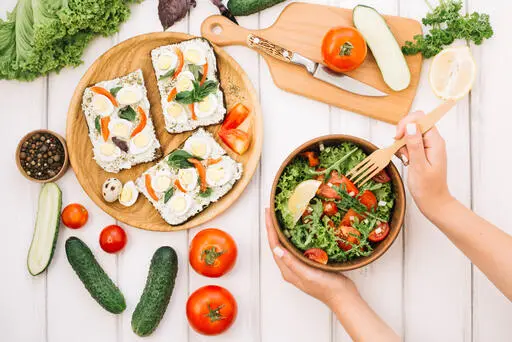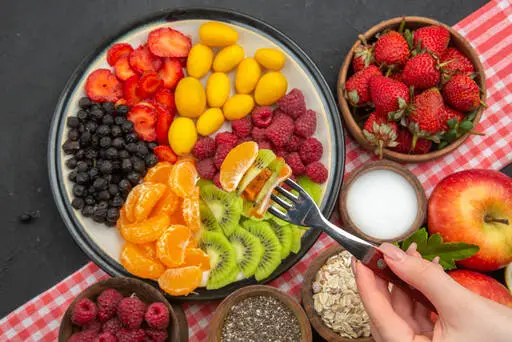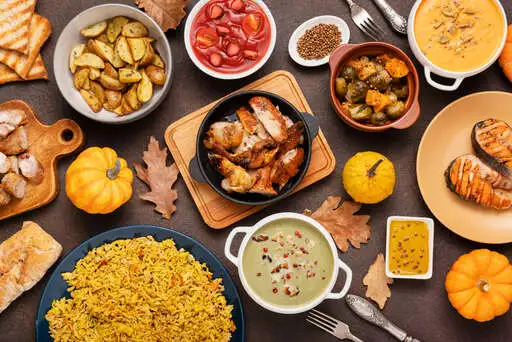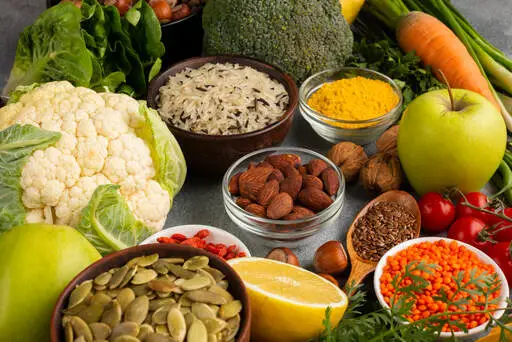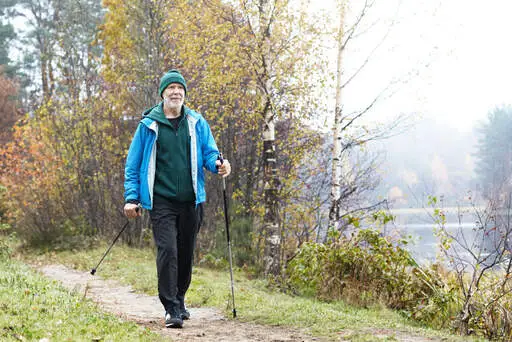At Good to Best, we think every little action toward lasting and responsible living makes a huge difference for people and the Earth. Making choices about what we eat that last and do less harm is a big part of this effort. In this article, we’ll explore how the choices about our meals are deeply connected to the big environmental issues the world deals with now. By choosing ways of eating that can keep going without hurting our planet, we not only help the Earth but also make our lives healthier. Let’s see how making choices that can keep going and cause less harm is not just good for the planet, but the best for us too.
1. Introduction
In today’s world, the choices we make about our food go far beyond just what’s on our plate. Every bite we take connects us to the planet in ways we might not even realize. This connection makes it crucial to think about how our food habits affect the environment and ourselves. Food isn’t just fuel; it’s a key to sustainable living.
Choosing the right food can help us live more responsibly and care for the world around us. It’s not just about eating healthy; it’s about making choices that ensure our food sources can last long into the future. By focusing on sustainable food options, we can make a positive impact on the planet’s health and our own well-being.
This article will dive into the world of sustainable food choices, showing how what we eat affects the environment and how making mindful decisions can lead to a healthier planet. From the production and transportation of food to the way we consume and dispose of it, every aspect matters. Let’s explore how making better food choices can lead us to a more sustainable and prosperous future.
2. Understanding Sustainable Eating
Sustainable eating is more than just a trend; it’s a way of choosing and consuming food that considers the long-term health of both people and the planet. It’s about making food choices that support environmental health, promote social justice, and ensure economic viability for food producers. Sustainable eating looks beyond immediate satisfaction to consider the impact of our food choices on future generations.
- What is Sustainable Eating?
Sustainable eating means opting for foods that are produced, processed, and distributed in ways that minimize environmental impact and preserve natural resources. It involves supporting local farmers and producers who prioritize eco-friendly practices such as organic farming, crop rotation, and minimal pesticide use. By choosing sustainably sourced foods, we can reduce the carbon footprint associated with food production and support biodiversity in our ecosystems. To understand the journey of food from its source to your plate and the importance of these practices, explore our detailed look at “From Farm to Fork: Tracing Our Food’s Origins,” which delves into the pathways food takes to reach us.
- Importance of Sustainable Eating
The importance of sustainable eating cannot be overstated in today’s world, where food systems are increasingly strained by population growth and climate change. By embracing sustainable eating practices, we can mitigate the environmental damage caused by industrial agriculture, such as deforestation, soil degradation, and water pollution. Sustainable eating also promotes healthier diets, as it encourages the consumption of fresh, whole foods that are free from harmful additives and pesticides. Moreover, by supporting local food producers and farmers’ markets, we can strengthen our communities and reduce our dependence on large-scale, corporate food systems. Sustainable eating isn’t just about what we put on our plates; it’s about making choices that nourish both our bodies and the planet.
3. The Environmental Impact of Food Choices
The food we choose every day has a big effect on the environment. From the water and land needed to grow food to the energy used to transport it, every step from farm to fork impacts the world around us. Making mindful choices about our food can help reduce these impacts, protecting the earth for future generations.
- Resource Depletion
The production of food, especially meat and dairy, requires a lot of natural resources, including water and land. Growing crops to feed animals for meat consumes much more water and land than growing plants for human consumption. This high demand can lead to overused land and water sources running dry. By choosing foods that use fewer resources, we can help protect these important natural assets.
- Greenhouse Gas Emissions
Food production, especially from large-scale farming, releases greenhouse gases into the atmosphere, contributing to climate change. From the methane produced by cattle to the carbon dioxide from tractors and transport vehicles, the process of getting food from the farm to our plates adds to the problem. By eating more plant-based foods and supporting local farms, we can reduce these emissions and lessen our environmental footprint.
4. Benefits of Sustainable Eating
Sustainable eating isn’t just good for the planet; it’s also great for us. Choosing food that’s produced in ways that care for the environment can lead to healthier lives and a healthier world. This way of eating encourages us to choose fresher, less processed foods, which can lead to better health and less environmental damage.
- Environmental Benefits
One of the biggest wins of sustainable eating is how it helps the environment. By choosing foods that are locally grown and produced without harming the environment, we can reduce pollution and save resources. This means less water used, fewer chemicals in our soil, and a reduction in the need to transport food long distances. All these changes help protect our planet’s future.

- Health Benefits
Sustainable eating is not only about making the world a better place but also about making us healthier. Foods that are grown sustainably are often more nutritious and less likely to contain harmful pesticides or additives. Eating a diet rich in fruits, vegetables, whole grains, and lean proteins can lead to better health, more energy, and a lower risk of diseases. Plus, by eating sustainably, we’re often choosing fresher, tastier food that nourishes our bodies and our taste buds.
5. Practical Tips for Sustainable Eating
Sustainable eating might seem challenging at first, but with a few practical tips, anyone can make food choices that are better for the planet and for their health. It’s all about knowing where your food comes from, how it’s grown, and making sure nothing goes to waste. Let’s dive into some easy ways to eat more sustainably every day.
- Choosing Locally Sourced Foods
One of the simplest ways to eat sustainably is to choose food that’s grown close to where you live. Locally sourced foods travel a shorter distance to get to your plate, which means less fuel and lower emissions. Plus, buying local supports your community’s farmers and can lead to fresher, tastier food on your table. Next time you shop, check out farmers’ markets or local produce sections to make a sustainable choice.
- Reducing Food Waste
A big part of sustainable eating is making sure we don’t waste food. Wasting food means wasting all the resources that went into growing it, like water and energy. To reduce food waste, plan your meals ahead of time, buy only what you need, and learn how to store foods properly to keep them fresh longer. Also, getting creative with leftovers can turn yesterday’s meals into today’s delicious dishes, cutting down on waste and saving you money.
- Embracing Plant-Based Options
Eating more plant-based foods is a powerful way to eat more sustainably. Plants require less water and land to grow than animals, and they produce fewer emissions. You don’t have to become a vegetarian or vegan, but adding more fruits, vegetables, grains, and legumes to your diet can make a big difference. Try starting with one plant-based meal a week and gradually increase from there. Not only is this good for the planet, but it can also introduce you to new, delicious foods and flavors.
6. Conclusion
In conclusion, the impact of our food choices on the planet and our health cannot be overstated. By adopting sustainable eating habits, we can contribute to a healthier environment and a brighter future for generations to come. From choosing locally sourced foods to reducing food waste and embracing plant-based options, every small change in our food habits can make a significant difference. Sustainable eating isn’t just about what’s on our plates; it’s about making mindful decisions that nourish both our bodies and the Earth. Let’s continue to prioritize sustainable food choices and work towards a more sustainable food system that benefits everyone and everything involved in the production and consumption of food. Together, we can make a positive impact on the world through our food choices.



